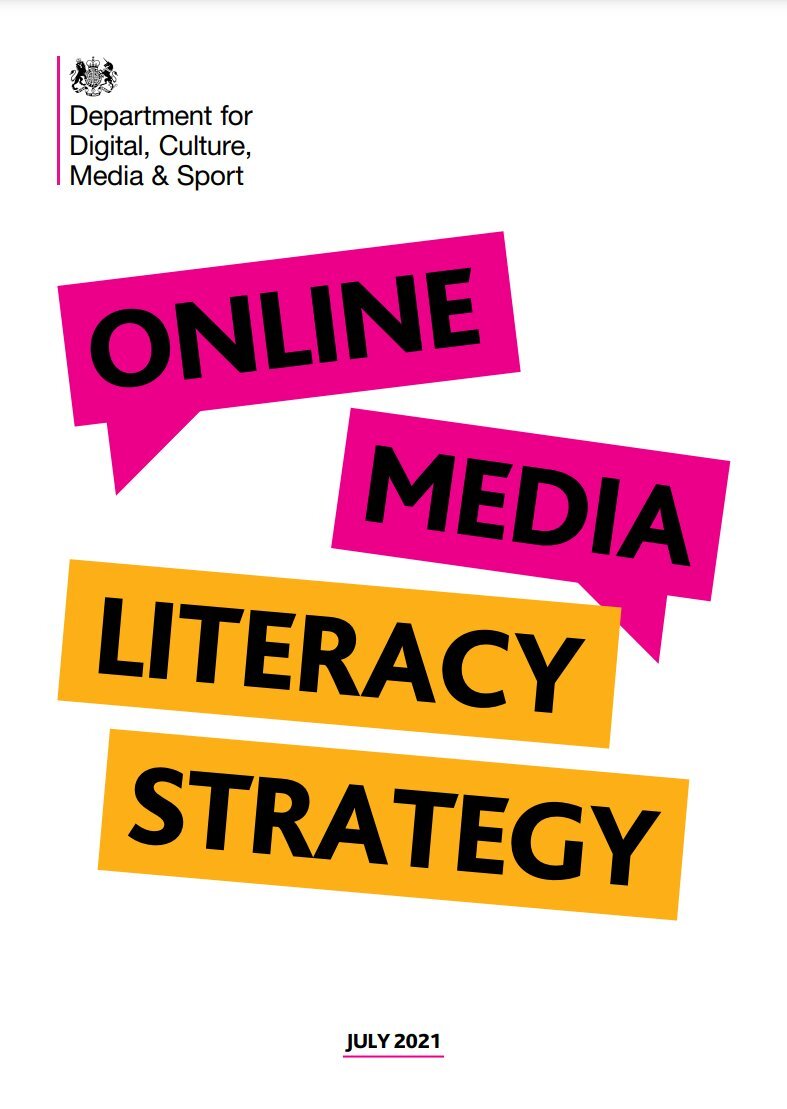On 14th July, the UK Department of Digital, Culture, Media, and Sport (DCMS) published the Online Media Literacy Strategy. The 104 page document sets an overall objective of supporting ‘organisations to undertake media literacy activity in a more coordinated, wide-reaching, and high quality way over the next 3 years.’
The Strategy proposes four approaches to achieving this objective: establishing a ‘strategic direction’ for the future of media literacy in the UK, enabling a ‘coordinated approach’ among media literacy advocates, ‘addressing key gaps’ in the current media literacy field, and providing more opportunities for organisations engaged in media literacy activities.
The Strategy also sets out a Media Literacy Knowledge and Skills Framework, based on five principles that users should understand. These principles are:
• the risks of sharing personal data online and how that data can be used by others, and be able to take action to protect their privacy online
• how the online environment operates and use this to inform decisions online
• how online content is generated, and be able to critically analyse the content they consume
• actions online have consequences offline, and use this understanding in their online interactions
• how to participate in online engagement and contribute to making the online environment positive, whilst understanding the risks of engaging with others.
The report identifies a number of factors that make it difficult for groups of people to improve their media literacy. These barriers include inexperience online (such as is found in people over 65), reduced access to the internet due to socioeconomic factors, and limited access to education. Other issues include reaching the 40% of people who lack the skills to ‘critically evaluate information’ online and protect users who are vulnerable to abuse. The report draws on research that finds that UK users struggle to identify misinformation and disinformation online, and this knowledge and skill gap has allowed harmful falsehoods to proliferate during the COVID-19 pandemic.
There is a strong focus on addressing the issue of mis and disinformation in the report which defines information literacy as “a subset of media literacy that supports users’ critical thinking skills and understanding of the journalistic process”.
In the Strategy the UK government commits to publishing a ‘Safety by Design’ framework aimed at SMEs and start-ups. This guidance will set out how
companies can improve their users’ safety through platform design – the design choices made by companies that shape a user’s end-to-end experience of an online product or service.
The report also outlines the six ‘key cross-sector challenges’ that the the UK government is committed to tackling over the next three years: evaluating current media literacy initiatives, overcoming the deficits in funding for media literacy organisations, making connections with hard-to-reach audiences, compensating for the lack of support and provisions for vulnerable users, increasing ‘resilience’ toward misinformation and disinformation, and coordinating within the sector more effectively.
As the national regulator, Ofcom’s role in promoting media literacy may be further strengthened due to the proposed Online Safety Bill proposed in May of 2021.
In addition to the online Media Literacy Strategy, an outline Online Media Literacy Action Plan was published, which sets out the government’s plans to address these challenges. This Action Plan outlines 8 initiatives to begin in 2021-22 including the establishment of a Media Literacy Taskforce, the development of a ‘one-stop-shop’ Media Literacy Online Portal, a Train the Trainer Programme, working with Social Media Influencers, the establishment of a UK Media Literacy Forum involving all the UK nations, a Media Literacy Communications Campaign, the development of training programme for staff, and the development of a module on media literacy to be included alongside the National Curriculum for Youth Work.
These activities will be developed over the Financial Year 2021/22 and will initially be funded with £340k.
